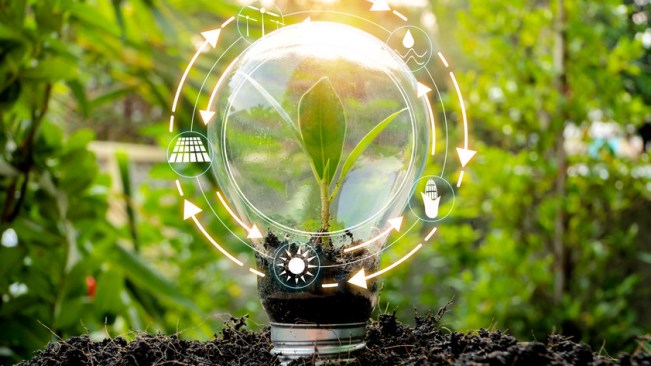The protein processing industry is continuously evolving, and 2023 is no exception. With increasing concerns over inflation, supply chain challenges, and competition, manufacturers are looking to prioritize sustainability to remain competitive in the market.
According to a recent survey by IDC, customer demand for eco-friendly products is the top factor motivating organizations to adopt sustainable practices. At JBT, we understand the challenges facing protein processors in today’s market, and we provide solutions to help our customers stay ahead of these trends.
Our innovative technologies and services not only promote sustainability, but they also increase efficiency, improve product quality, maximize yield, and reduce costs. Whether it’s our water- and energy-saving innovations, yield improving and food waste reducing solutions, sustainable packaging alternatives, or our expertise in traceability and food safety, JBT helps processors meet the demands of consumers while also addressing their own business needs. With JBT, processors can confidently embrace sustainability and remain competitive in an ever-changing industry.
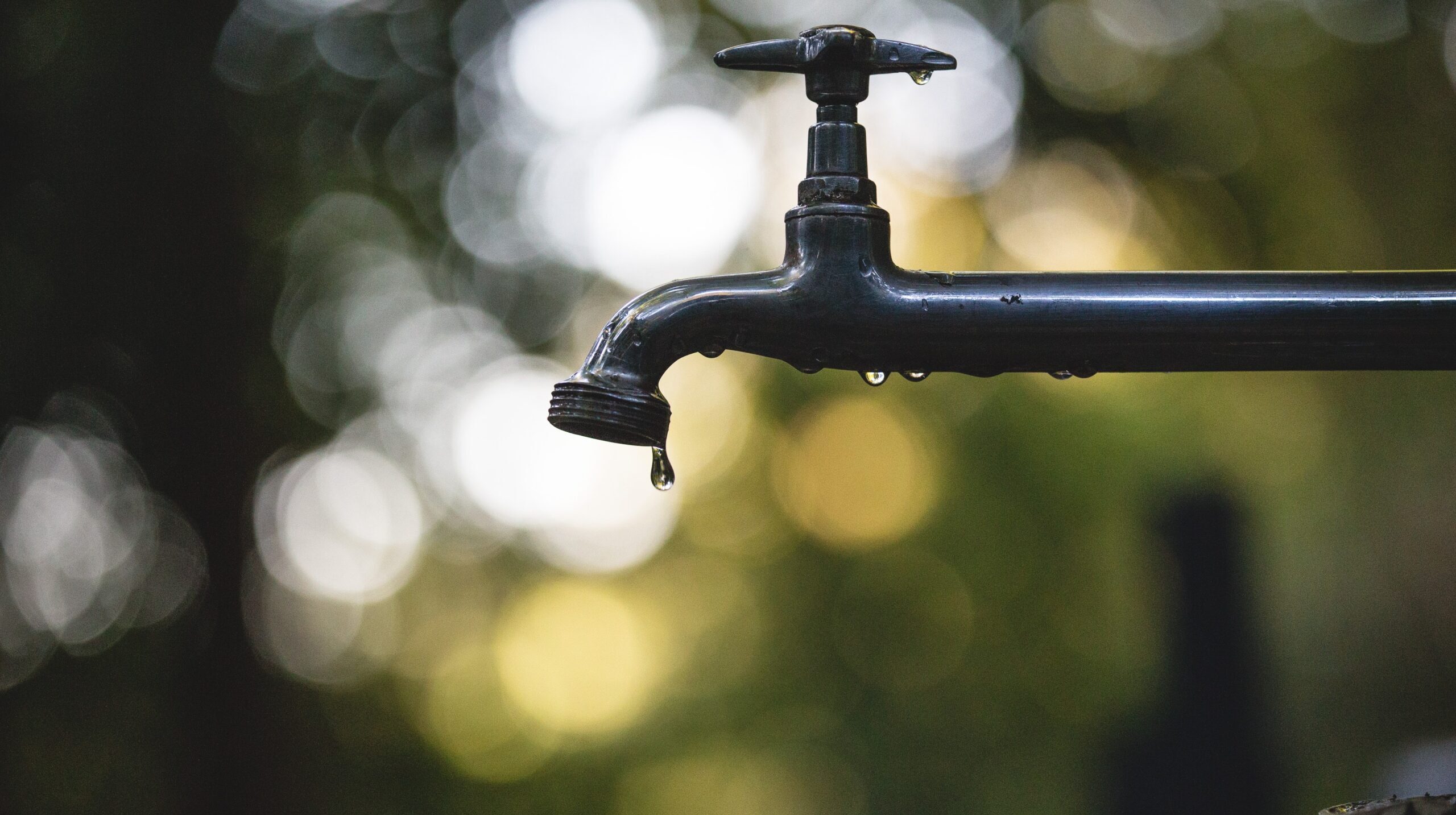
Maximizing Energy and Water Efficiency in Protein Processing
“Electricity and fuel are major contributors to carbon footprints, representing significant costs,” says Carlos Fernandez, Executive Vice President, Customer Sustainability and Market Development at JBT Corporation. To reduce emissions, manufacturers must invest in efficient equipment, technology, and processes. In 2023, the industry will see increased adoption of energy efficient technology and water reuse systems to reduce water and chemical usage, reducing the carbon footprint of protein processing.
Water is becoming a limited natural resource, and in many parts of the world, our customers now must pay a tariff on their wastewater based on how much they produce and how clean it is. So, to be sustainable, a production line must be as efficient as possible when it comes to water usage and wastewater management.
To combat this, JBT Prevenio’s Automated Recycle and Cleaning System (ARC) is a water recycling solution for protein processing facilities. The ARC system also decreases chemical consumption by over 10%. This not only saves water and chemicals, but it also prevents the disposal of potentially harmful substances down the drain.
The ARC system is designed to integrate with The JBT C.A.T. ReChiller, which is a system designed to recirculate and cool water used by chiller products for poultry and fish processing. The system recirculates and cools the water, which reduces water consumption and energy consumption. The system also helps reduce wastewater generation, making it more environmentally friendly. The system’s design ensures that the water used in processing is clean and fresh, which helps to maintain the quality of the products being processed.
JBT constantly develops equipment to make them more and more energy efficient. The self-stacking construction in JBT Frigoscandia GYRoCOMPACT® Spiral Freezers is extremely energy efficient in itself. By offering no tension instead of low tension, it only needs a 5,5 KW motor which is half of what a traditional drum freezer requires, reducing energy consumption by almost 30%.
The Frigoscandia Low Volume System (LVS) is up to 20% more efficient than the traditional pumped refrigerator system, and it requires 15% less energy and 50% less refrigerant charge than conventional systems.
At JBT, we work continuously with what we call Hygiene by Design. That means that we are constantly developing our equipment, like replacing bolts and washers with welded joints to eliminate potential food traps. Bacterial growth needs surfaces, so we actively design to minimize them and create coatings to prevent the occurrence of biofilm.
One good example of how we work with design is the self-stacking Frigoscandia Spiral Freezers. It’s constructed in a way that automatically reduces the use of water and detergents. Because it has no stationary parts in the belt stack, it consumes up to 65 % less water and requires 50% less cleaning time than a traditional drum freezer.
JBT Protein has developed innovative solutions to maximize energy and water efficiency in food processing. The Prevenio ARC System, C.A.T. ReChiller and Frigoscandia GYRoCOMPACT Spiral Freezers are just a few examples of the solutions provided by JBT Protein to help reduce energy consumption, water usage, and wastewater generation in the food processing industry. These solutions not only help the environment but also contribute to the overall sustainability of the food processing industry, which is crucial in today’s world.
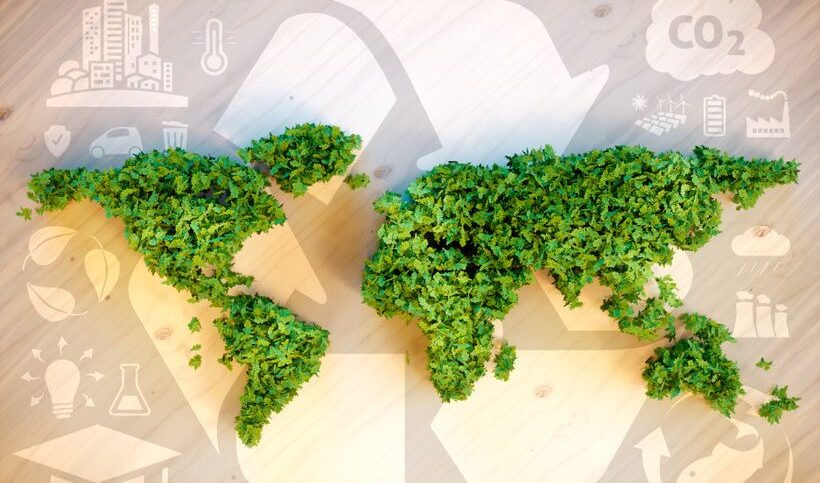
The Importance of Reducing Food Waste
Reducing food waste is crucial to address the global challenges of hunger and climate change. The industry must extend the shelf life of products to improve food security and reduce waste by utilizing technology and finding innovative solutions. Fernandez emphasizes the need for manufacturers to “partner with their technology providers to develop and utilize technology that makes the best use of natural resources.”
Setting up and maintaining a sustainable production line is essential both for processors economy and the planet. Producing food with higher efficiency using sustainable equipment creates more yield with less energy consumption and food waste.
JBT provides several solutions aimed at reducing food waste in the protein processing industry. These solutions such as JBT’s DSI™ Waterjet Portioners are designed to optimize cutting yield and reduce food waste while improving value delivery on every piece of input product. These portioners use high-pressure waterjets to precisely cut and portion food products. The precision cutting of the waterjet portioners minimizes waste and improves yield, delivering a higher value per input product. The portioners are also capable of processing a wide range of food products, making them versatile and efficient.
The JBT Formcook® Contact Cooker when combined with Stein TwinDrum™ Spiral Oven is a solution designed to minimize cooking losses and increase product yield while cooking whole muscle poultry products. By using JBT’s Formcook Contact Cooker to briefly cook the product and set the surface prior entry into JBT’s Stein TwinDrum Spiral Oven, the product height expansion gets restricted. Products that are contact cooked before entering the oven have a much more uniform muscle contraction during the oven cooking, resulting in an even sized product which significantly decrease the number of overcooked products by up to 10% and increase the product yield with 2-4%.
The use of freezers plays a significant role in reducing food waste. By freezing food, it stays fresh longer and provides more time for the consumer to enjoy it before it reaches its expiration date and needs to be thrown out. We believe it is essential to continue innovating and deploying food and beverage preservation solutions. It has been proven that frozen foods, ambient shelf-stable foods, and extended shelf-life refrigerated foods help reduce waste and create a more secure global food system.
JBT’s OmniBlu digital tools are designed to monitor machine health and performance in real-time and assist in reducing food waste and maximizing raw material usage. It uses collected real-time data to provide customers a better view of their operation, improving food safety and energy savings. It can, for instance, measure and document concentrations of cleaning chemicals, as well as cleaning water volume and temperature.
That way, our customers can ensure that they are following cleaning procedures and prevent potential bacterial growth issues while optimizing the use of water and detergents. OmniBlu also empowers sustainability by offering preventive and proactive maintenance to keep energy consumption low and avoid unplanned breakdowns that would normally create food waste.

Innovation in Cultivated Meats
Factory farming is a significant contributor to greenhouse gas emissions and nutrient pollution. Cell-based proteins have the potential to revolutionize the food industry, as they eliminate the need to raise and farm animals for consumption, reducing the environmental impact of food production. While not mainstream yet, cell-based proteins are growing in demand and are expected to become a leading alternative-protein source in 2023 and beyond.
JBT’s A&B Process Systems provides leading process systems for cultivated protein production through its READYGo Bioreactor. The bioreactor is designed for processing companies in the cultivated meat sector, with volumes ranging from 20 to 20,000 Liters, making it suitable for both pilot and full-scale production. It offers flexibility, customization, and scalability to meet the needs of the growing cell-based protein market without adding unnecessary costs.
JBT’s A&B provides mix studies, CFD analysis, and 3D modeling, and has over 45 years of experience in sanitary process piping. As a vertically integrated supplier, JBT controls its supply chain and is committed to reducing downtime and completing projects within budget and on time. The company’s extensive Factory Acceptance Testing reduces installation time and provides customers with R&D and Pilot Production equipment in stainless steel systems to support long-term scale-up plans.
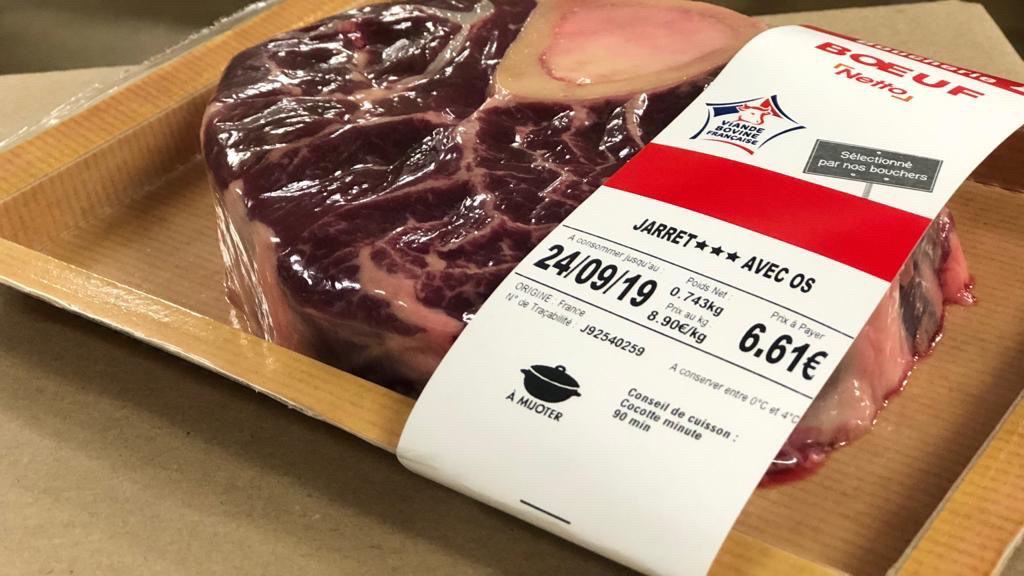
Consumer Demand for Eco-Friendly Packaging
Consumers are willing to pay more for brands that adopt sustainable packaging alternatives, leading to an increased shift towards compostable, paper, and paperboard materials. Tray-sealing packaging, which reduces plastic and energy usage while preserving product quality, will also become more popular. Mono-material plastics, which are easier to recycle than multi-material layered plastics, will also be adopted by brands to meet consumer demand.
To help our customers reduce overall plastic usage, our Proseal® technologies replace more cumbersome and wasteful alternatives. Compared to using a plastic clamshell, the top-sealed trays run through Proseal equipment use 42% less plastic. This not only saves space during transportation and storage but also provides superior protection for the product.
Proseal packaging is compatible with board and paper pulp materials such as HALOPACK®, which is a lightweight 90% recycled cardboard packaging solution with a better seal than standard PP-PE or PET packaging and is easily recyclable, making it easy for customers to switch to more sustainable options.
JBT TIPPER TIE creates efficient machines that package products in an environmentally friendly and sustainable way. Chub packaging, for example, generates TEN TIMES LESS PACKAGING WASTE than other containers making it one of the most environmentally friendly options in packaging.
AutoCoding Systems also contributes to sustainability efforts in the packaging industry with its innovative solution that eliminates errors and increases efficiency in the coding and labeling process. The system helps reduce packaging waste, product recalls, and rework. AutoCoding accurately and consistently applies codes and labels to products, reducing the risk of errors and streamlining the packaging process. The solution can also reduce labor costs and increase profitability.
With additional modules for quality assurance, inspection reporting, and line performance monitoring, factories can further extend automation and improve their operations. The Paperless Quality module automates QA processes, the Inspection Reporting module identifies inefficiencies in real-time, and the LPR module ensures equipment is running at optimal capacity.

Sustainability in Uncertain Times: The Importance of ESG for Protein Processing
The uncertainty of today’s economy makes it more crucial than ever for protein processors to prioritize sustainability. Implementing a robust environmental, social, and corporate governance (ESG) plan is key to achieving both sustainability and business goals. Fernandez believes that “manufacturers that leverage innovative technologies to address the social and environmental impact of the industry will accelerate growth and transform the industry now and in the future.”
Brian Deck, JBT’s CEO, states “JBT’s purpose is to help our customers succeed in the marketplace by giving them solutions to make better use of the world’s precious resources. Optimizing the use of natural resources means doing business responsibly and wisely. We help our customers achieve this through automation, electrification, efficiency, resource conservation of water & energy, and minimizing food waste.”
Deck and Fernandez encourage other companies to adopt a similar approach to help tackle some of the world’s biggest challenges, such as reducing food waste, feeding a growing population, and preserving the planet for future generations. Putting ESG first is not only the right thing to do but also good for business and the future of our planet.
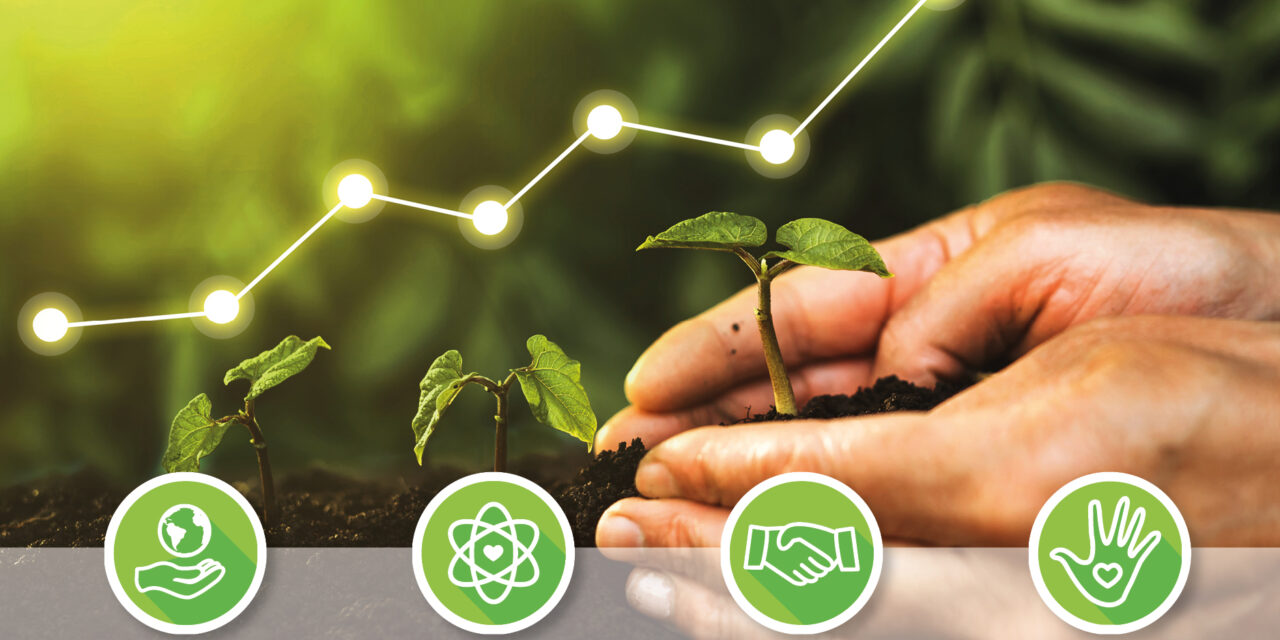
Sustainability Takes Center Stage in the Protein Processing Industry
As 2023 unfolds, the protein processing industry is progressively shifting its focus towards sustainability in response to customer preferences for eco-friendly products and the need to address environmental concerns such as carbon footprint, food waste, and greenhouse gas emissions. The industry is anticipated to adopt energy and water-efficient technologies, invest in cell-based proteins, and transition to compostable packaging to cater to consumer demands.
Companies like JBT are at the forefront of delivering solutions that enhance sustainability at every stage of the food production process, including reducing plastic usage in packaging, minimizing microplastics in food, optimizing yield, and prolonging shelf life. Through collaboration with technology providers and efficient supply chain management, JBT is dedicated to cutting costs and elevating the overall sustainability of the protein processing sector.

